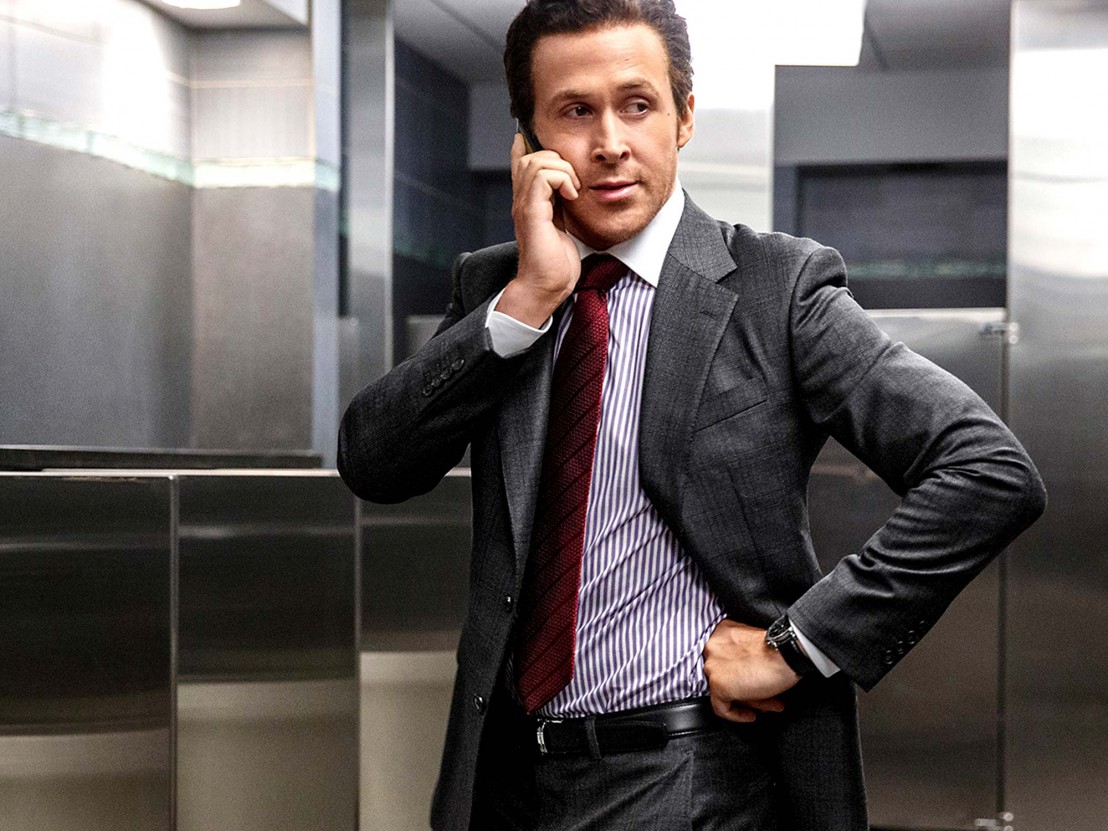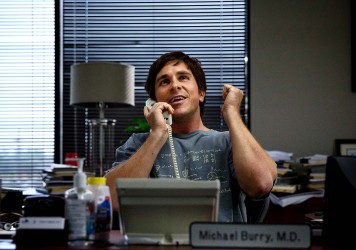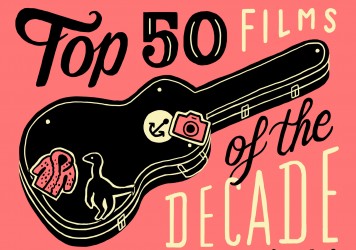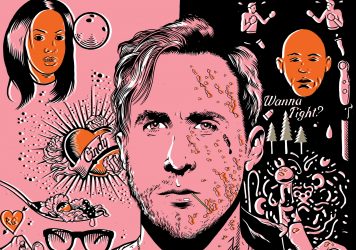
Forget about the junk bonds, the mortgage-backed securities and the collateralised debt obligations. Like all good films set in the world of high finance, The Big Short isn’t really about the green stuff – it’s about men, or, more specifically, the tragicomic consequences of male impotence.
On the surface the film is packed with pop culture references and fourth wall-breaking monologues that attempt to explain the vacuous financial products that underpin the system. Look beyond these, however, and The Big Short is much more interesting for its ragtag ensemble of male protagonists that drive the story.
From Christian Bale’s socially awkward numbers bod to Steve Carell’s emotionally spent fund manager, each man is ostracised because they don’t comply with a construct of machismo forged in the unrelenting, male-dominated world of finance. These men cement their outsider status by exposing a fatal flaw in the system and by betting against it – but, crucially, they were misfits before they exposed it and remain misfits afterwards.
Misfits, but not losers. The true losers here are the endless stream of nameless chumps who appear throughout the film in unblinking support of a morally bankrupt system. Their impotence is defined by their ingrained inability to break convention, think independently and challenge perceived wisdom, even when the evidence says they should.
The imagery of impotence appears throughout, from gun ranges where cocksure bankers pointlessly fire off a few rounds, to beautiful women with zero emotional interest in the men who pay to ogle them – a common device in films on this subject. The Big Short also subverts the bullshit macho banter of the financial mainstream with absurd exchanges between the main characters. “I smell money,” says Ryan Gosling’s jester-like banker. Unlike the oblivious majority, he is self-aware enough to expropriate the system’s discourse as he simultaneously dismantles it.
In this regard, The Big Short follows a number of films that portray the financial world as one big joke at the expense of impotent men. Oliver Stone’s Wall Street, arguably the seminal film on the subject, is about the desire of its two male leads – ambitious stockbroker Bud Fox (Charlie Sheen) and cut-throat investor Gordon Gekko (Michael Douglas) – to command power and wealth beyond the reach of mere mortals. In reality they create nothing of tangible value and are left devoid when their trades unravel.
With his alliterative name, slick appearance and sharp intelligence, Gekko is initially presented as an alpha male superhero, seemingly invincible. By the end he is reduced to forlornly beating Fox for betraying him. “I gave you Darien,” Gekko yells, referring to the trophy girlfriend (Daryl Hannah) they share between them. “I gave you your manhood.” In this moment Gekko claims to exert control over masculinity itself, when really he is just as pathetic as Fox.
Of course, in certain films about financiers you don’t have to look too deep to see these themes emerge. American Psycho is about a banker who would rather kill women than have sex with them, while its ‘business card’ scene is possibly the best metaphor for dick-measuring ever committed to film. Martin Scorsese’s The Wolf of Wall Street is one long essay on male degeneracy and impotence. The ‘Quaaludes overdose’ scene, in which main character Jordan Belfort (Leonardo DiCaprio) is rendered comically useless by the drug, is a spectacle of impotence.
Anyone working in the finance game could probably protest that such unkind portrayals are typical of a left-wing filmmaking community that dislikes capitalist machinations. They might be right. But even in a more serious treatment of the topic (see the criminally underrated Margin Call) the malignant effects of skewed gender dynamics are laid bare.
Set in a Lehman Brothers-esque company, each male character in Margin Call is essentially a different male archetype, from the ruthless CEO (Jeremy Irons) to the whipsmart young analyst (Zachary Quinto) who discovers the firm is on the brink of collapse. For all their different attributes, each man agrees to close ranks and sell off the company’s worthless assets as a nakedly immoral way of preserving their collective existence. The one female character, Demi Moore’s chief risk officer, is singled out, blamed and sacked.
As with The Big Short, all the chatter about leverage and yields is the fluff that tells you it’s a film about finance. The underlying message is the same – don’t blame the system, blame the impotent men who maintain it.
Published 19 Jan 2016

The director of Anchorman 2 dials back the screwball in this frisky tale of the sub-prime mortgage meltdown of 2007.

Before you get stuck into another bumper year of new releases, check out these great movies you might have missed.

The Lost River director reflects on his childhood and ponders the myth of the American Dream.